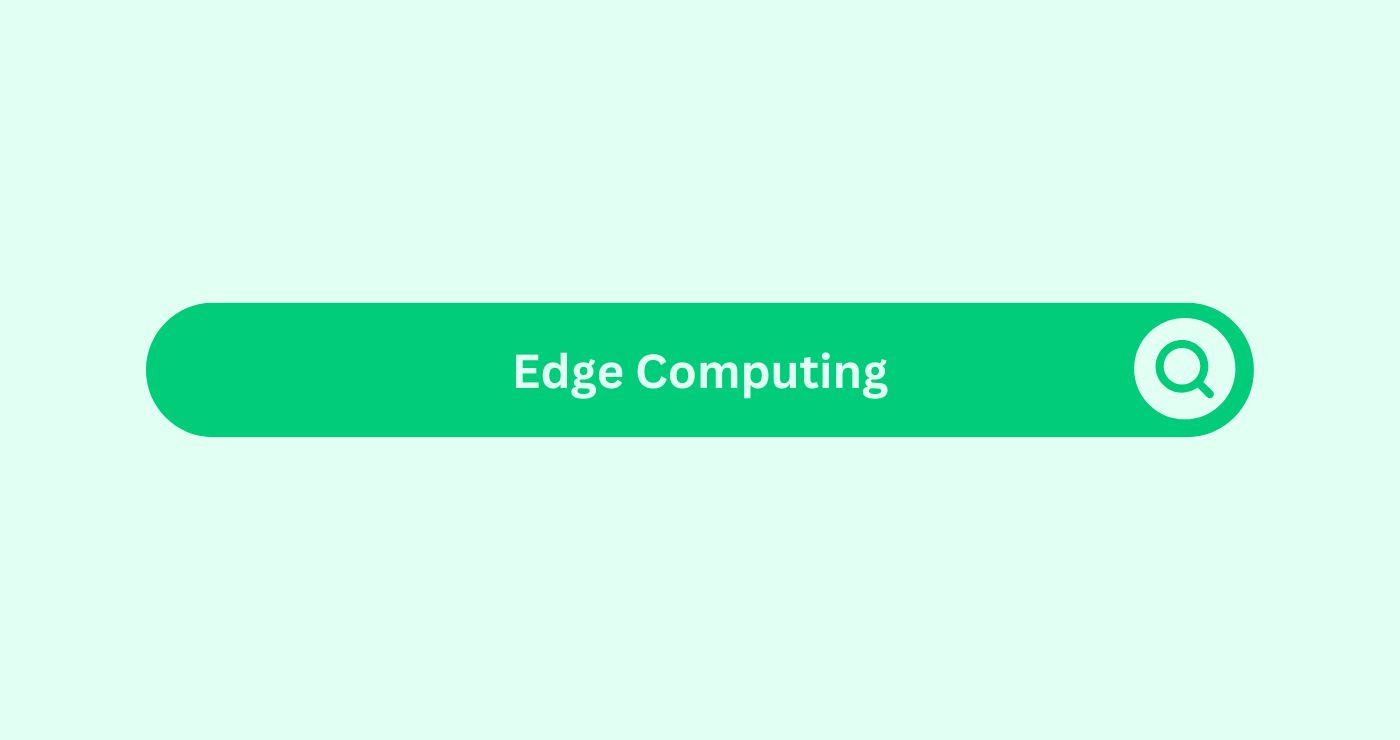Definition
Edge computing in AI terms in content marketingDefinition Content marketing strategically creates and share... refers to processing data closer to the source of generation (at the “edge”) rather than relying solely on centralised cloud servers. In content marketingDefinition Content marketing strategically creates and share..., this technology enhances data speed, reduces latency, and supports AI applications like real-time personalisationDefinition Personalisation refers to the process of tailorin..., behavioural targeting, and voice search analysis.
It’s basically getting the tech to handle data right where the action is, instead of sending everything on a round trip to some far-off cloud serverDefinition A Server in the SEO space refers to a computer sy....
An SEO company uses edge computing to instantly deliver geo-targeted content to users, improving engagementDefinition Engagement in content marketing refers to the deg... and page speedDefinition Page speed refers to the time it takes for a web ... scores. A digital marketing agency in Auckland deploys it to serve adaptive landing pagesDefinition Landing pages are standalone web pages specifical.... It changes based on the user’s location, device, or previous interaction. Performance marketing agencies apply edge-powered AI models to process user behaviourDefinition What is User Behaviour in Social Media Marketing?... data quickly, triggering automated content changes. Auckland SEO experts rely on edge platforms to enhance mobile site speedDefinition Site speed refers to the amount of time it takes ..., reducing bounce rates and improving SERP rankings.
An SEO agency: they’re using edge computing to throw hyper-local content at you the second you show up, which means pages load faster and folks actually stick around instead of clicking away.
Edge computing strengthens the overall digital infrastructure, ensuring faster load times, responsive content, and a seamless user journey—critical factors for search engine algorithms and user retention.
Example
A performance marketing agency launches a multi-location campaignDefinition An SEO campaign involves focused, Organised effor... where AI dynamically serves content based on the user’s region. Using edge computing nodes, the agency shortens serverDefinition A Server in the SEO space refers to a computer sy... response time from 2.3 seconds to under 0.8 seconds. As a result, blog content, product listings, and pricing pages load instantly, especially for mobile users in rural New Zealand. This reduces bounce rates by 42% and raises local conversionDefinition In the realm of SEO, Conversion refers to the pro... rates by 61%.
A digital marketing agency in Auckland also integrates voice search AI at the edge, enabling fast keyword detection and regional content delivery in milliseconds.
Formulas and Easy Calculations
Impact of Edge Computing on SEO and User EngagementDefinition Engagement in content marketing refers to the deg...
| Metric | Formula | Example Values | Outcome |
|---|---|---|---|
| Page Load Time Reduction | (Old Time – New Time) / Old × 100 | (2.3 – 0.8) / 2.3 × 100 | 65.2% Faster Load Time |
| Bounce RateDefinition Bounce Rate in social media marketing refers to t... Improvement | (Old – New Rate) / Old × 100 | (48% – 28%) / 48% × 100 | 41.7% Decrease |
| Engagement RateDefinition The engagement rate in social media marketing mea... Increase | (New – Old EngagementDefinition Engagement in content marketing refers to the deg...) / Old × 100 | (3100 – 2100) / 2100 × 100 | 47.6% Uplift |
| Local ConversionDefinition In the realm of SEO, Conversion refers to the pro... Boost | (Local Conversions – Old) / Old × 100 | (390 – 240) / 240 × 100 | 62.5% Growth |
| Mobile Speed Index Gain | (Old Score – New Score) / Old × 100 | (5.8 – 2.1) / 5.8 × 100 | 63.8% Performance Improvement |
5 Key Takeaways
- Edge Computing in AI Terms in Content MarketingDefinition Content marketing strategically creates and share... allows real-time personalisationDefinition Personalisation refers to the process of tailorin... by processing data closer to users.
- SEO companies improve mobile SEO rankings by reducing latency and load times using edge servers.
- Performance marketing agencies use edge AIDefinition Edge AI in AI Terms in Content Marketing refers t... to rapidly adapt content formatsDefinition In the SEO space, "formats" refer to the various ... and messaging based on live behaviour data.
- Digital marketing Auckland firms benefit from voice search AI and responsive localisation powered at the edge.
- Auckland SEO experts enhance user retention by optimising technical SEO factors such as Core Web Vitals through edge computing.
FAQs
How does edge computing help content marketers?
It delivers faster, localised content, improving engagementDefinition Engagement in content marketing refers to the deg... and reducing bounce rates, especially for mobile users.
Can edge computing improve SEO performance?
Yes. Faster page speeds, improved mobile experience, and real-time data handling all positively affect SEO rankings.
How do performance marketing agencies use edge AI?
They process behavioural data instantly and adjust offers or headlines in real time to match user actions.
Is edge computing useful for local SEO?
Absolutely. It boosts geotargeted content delivery speed and relevanceDefinition In SEO, relevance refers to the degree to which a..., especially for location-specific searches.
Can a digital marketing agency Auckland implement edge computing affordably?
Yes. Cloud providers now offer scalable edge platforms suitable for small to mid-sized agencies targeting NZ audiences.




